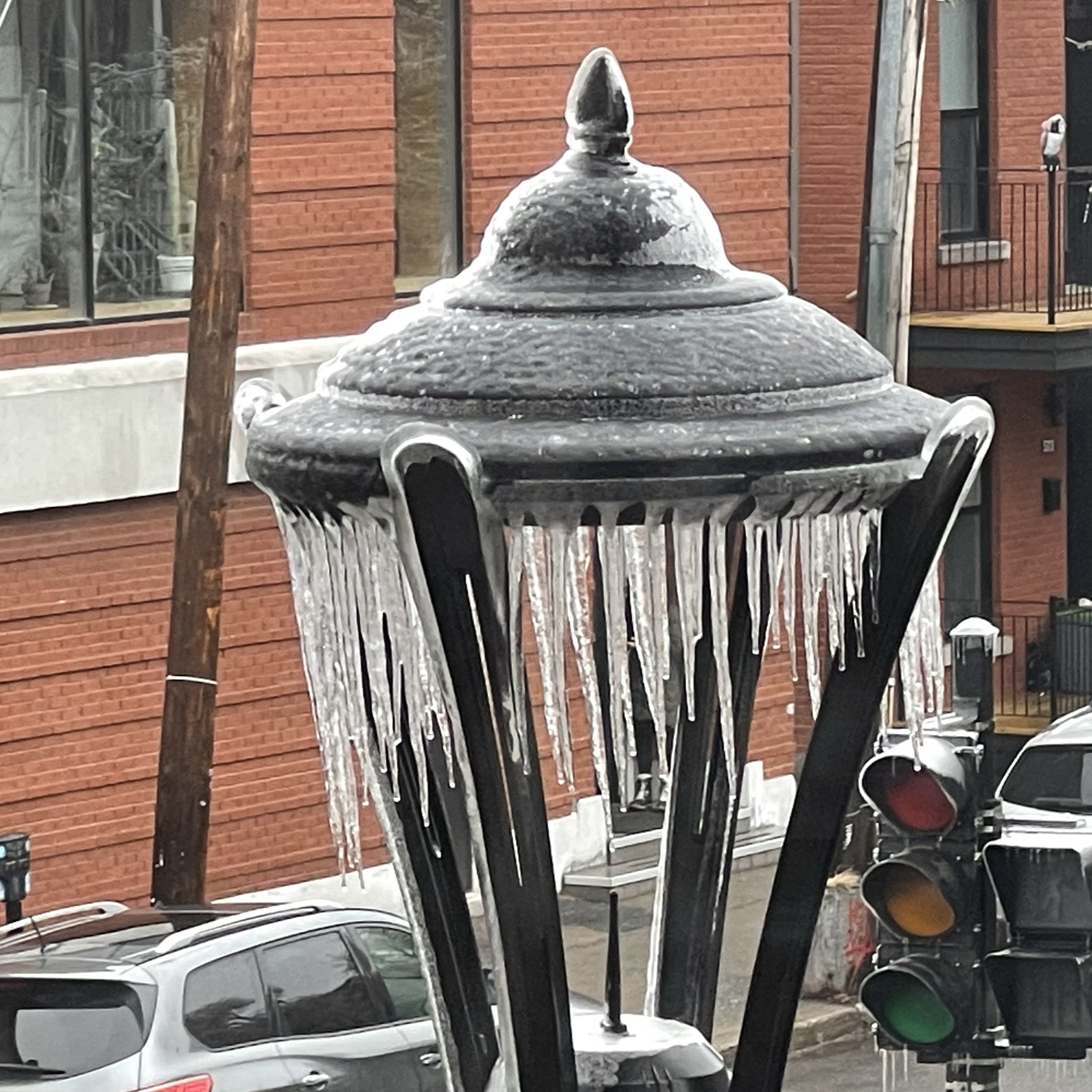
It started as just another freezing rain warning, and ended as one of the most devastating ice storms seen in Canada since the 1990s. This is what it was like to experience the April 2023 ice storm which left thousands without power over the Easter long weekend.
A Freezing Rain Warning
Environment Canada issue several freezing rain warnings each Winter. They’re not uncommon and typically you just end up with slippery sidewalks and have to take care when getting around. At the most extreme end, schools close for the day and admissions to hospitals increase as people slip and injure themselves.
So, I wasn’t alarmed as I left for the office that morning under such a weather warning. As I reached downtown Montreal and got off the Metro the sky was just starting to rain down ice pellets. From the comfort of the office, I watched the weather turn stormy. We even had a clap of thunder.
During my morning break I popped out to go to the post office. At this point the ice pellets were covering the ground, the wind was icy cold and I could hear the sound of the pellets hitting my jacket and sticking to it. The ground was slippery, the wind was strong and it was proving to be really unpleasant to be outside.
As the day trundled on, there wasn’t any sign of the promised freezing rain in downtown. My wife had texted me to say there had been a brownout back home in the East of the city, but so far no full scale outage.
I began to periodically open the Hydro-Québec app to check for outages. Throughout the afternoon, the app’s map gradually turned red. One by one, my colleagues who were working from home that day sent Slack messages saying their power had gone out.
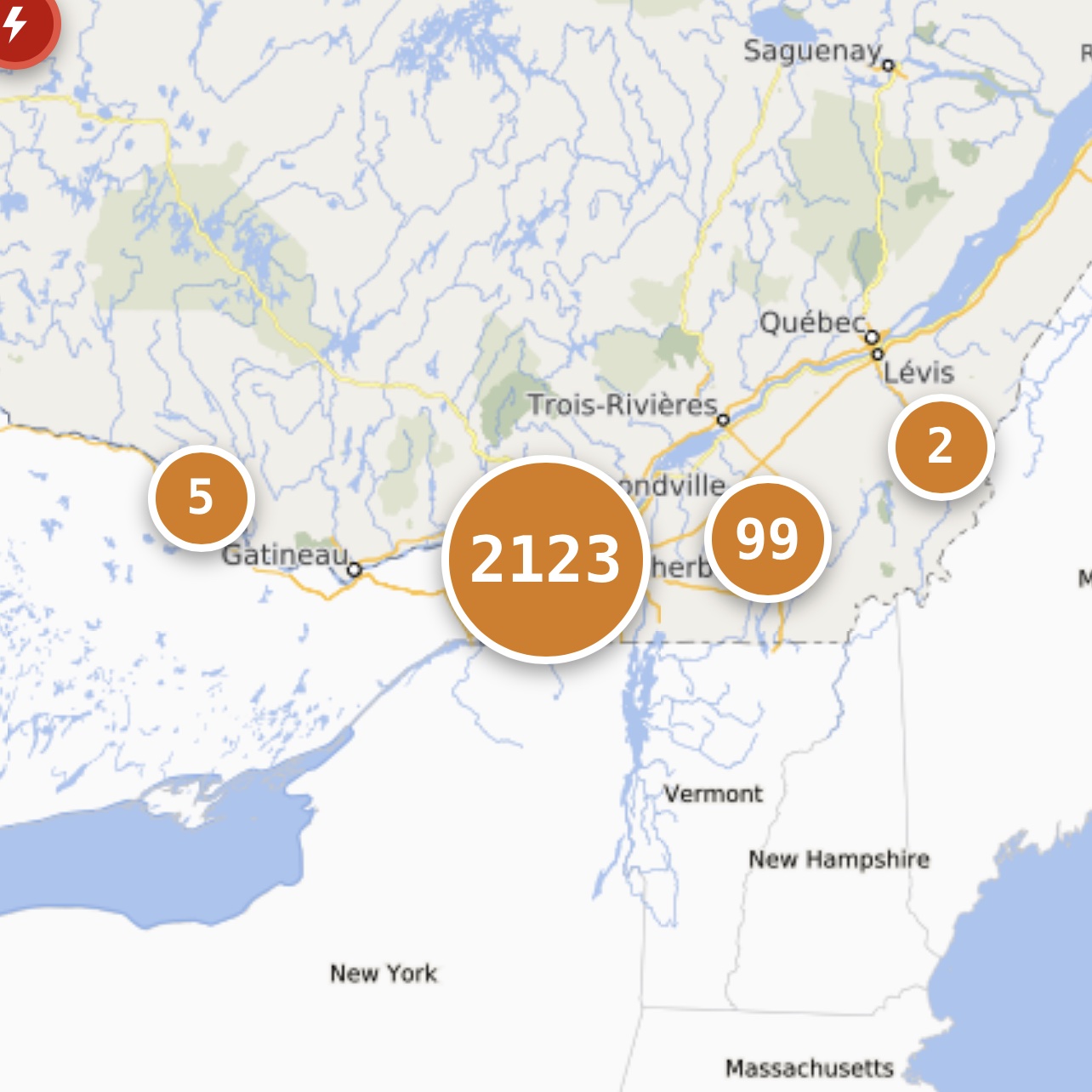
As I was getting ready to head home, I got another message from my wife to say we’d just lost power at home. I checked the map again, and our neighbourhood was now a sea of outages.
I took a detour on my way home to stop by one of the downtown supermarkets as I had a feeling we might not have any open near our place. I’d heard during bad ice storms there was the risk of falling trees and ice, so I also wanted to minimise the amount of time spent outside and not have to search for open stores.
When I got off the Metro and onto the bus, I was astonished how bad things looked as we wound our way through the neighbourhood. Everything was covered in ice. Trees, signposts, power lines. It always amazes me how Montreal’s mountain protects quadrants of the city from the worse effects of weather systems. Downtown seemed unscathed, but as I got off the bus east of the mountain the street was in darkness, the traffic lights were out and several trees near my place had already collapsed under the weight of accumulated ice.
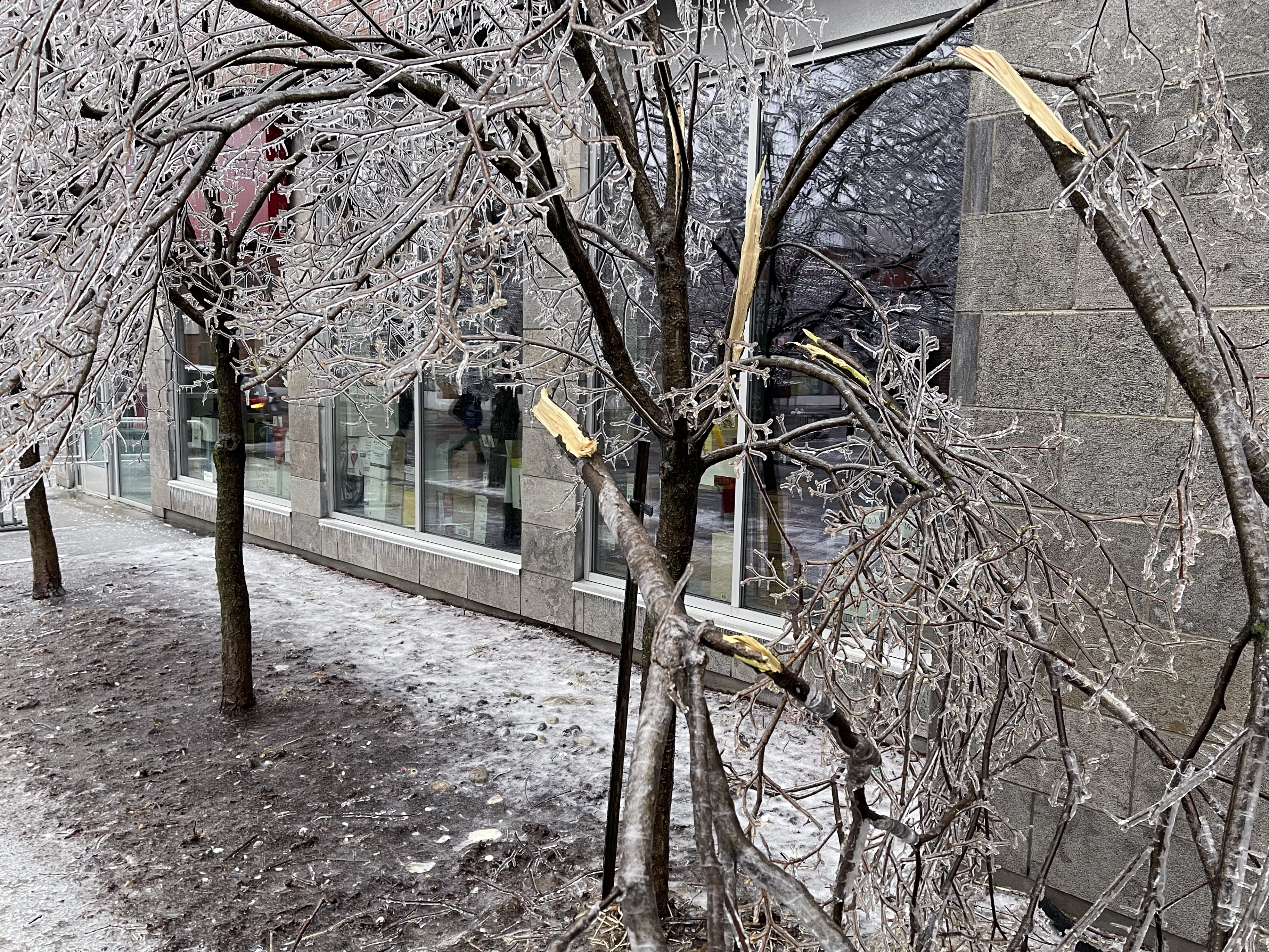
I had to use my iPhone’s light to navigate the stairs up to our apartment as the building was pitch black, the emergency lighting already drained of energy. When I got into my apartment, we set up some candles and ate a picnic-of-sorts constructed from the groceries I’d picked up on my way home.

Thankfully, the temperature outside was cold, but not too cold, maybe around -5°C. The apartment was getting chilly, but nothing which couldn’t be mitigated by wearing some extra layers.
There was an eerie lack of background noises. With the fridge, the air purifiers not running and none of the other white noise a modern building typically generates, you could hear noises you wouldn’t normally notice. The neighbours moving around, footsteps in the ice and conversations of the people outside on the dark street.
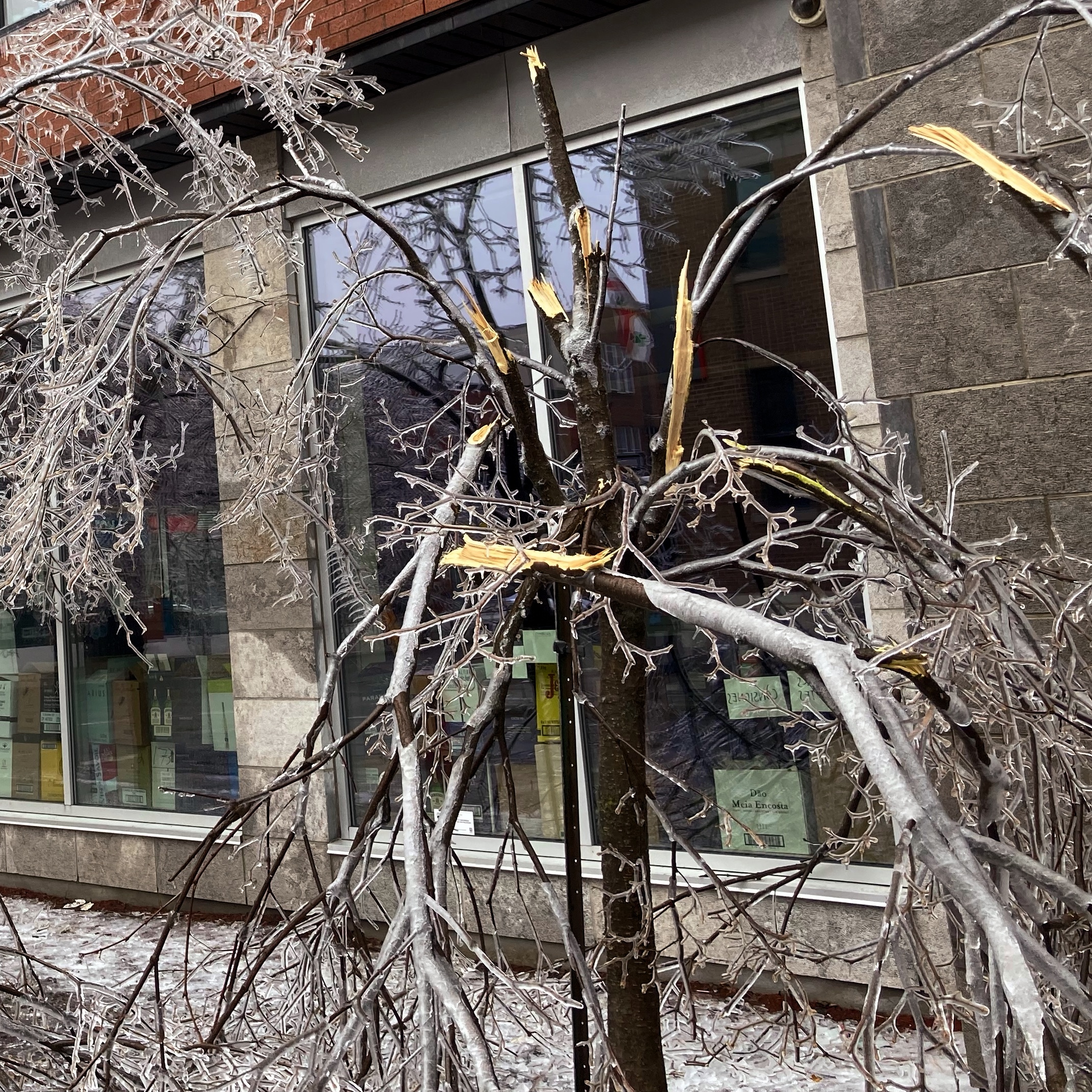
Taking a look outside things remained unnervingly dark, save the headlights of passing cars. Our windows are large and usually let in light from the street lamps, the giant screen on the nearby bus stop and the eccentric display of LED lights from the shop opposite. With no light pollution no shadows were cast indoors.
Occasionally the sky, not quite dark enough to show us the stars, would flash. It looked like lightning but the tint was green and there was no accompanying clap of thunder. Likely these were transformers overloading as power lines came down. The wind had picked up too and was no doubt not helping the situation.
It was all very surreal. I’d say one of the most surreal weather events I’d experienced. Less terrifying than the 1987 hurricane which hit the south east of England when I was a child, but somehow more unsettling in its quiet carnage.
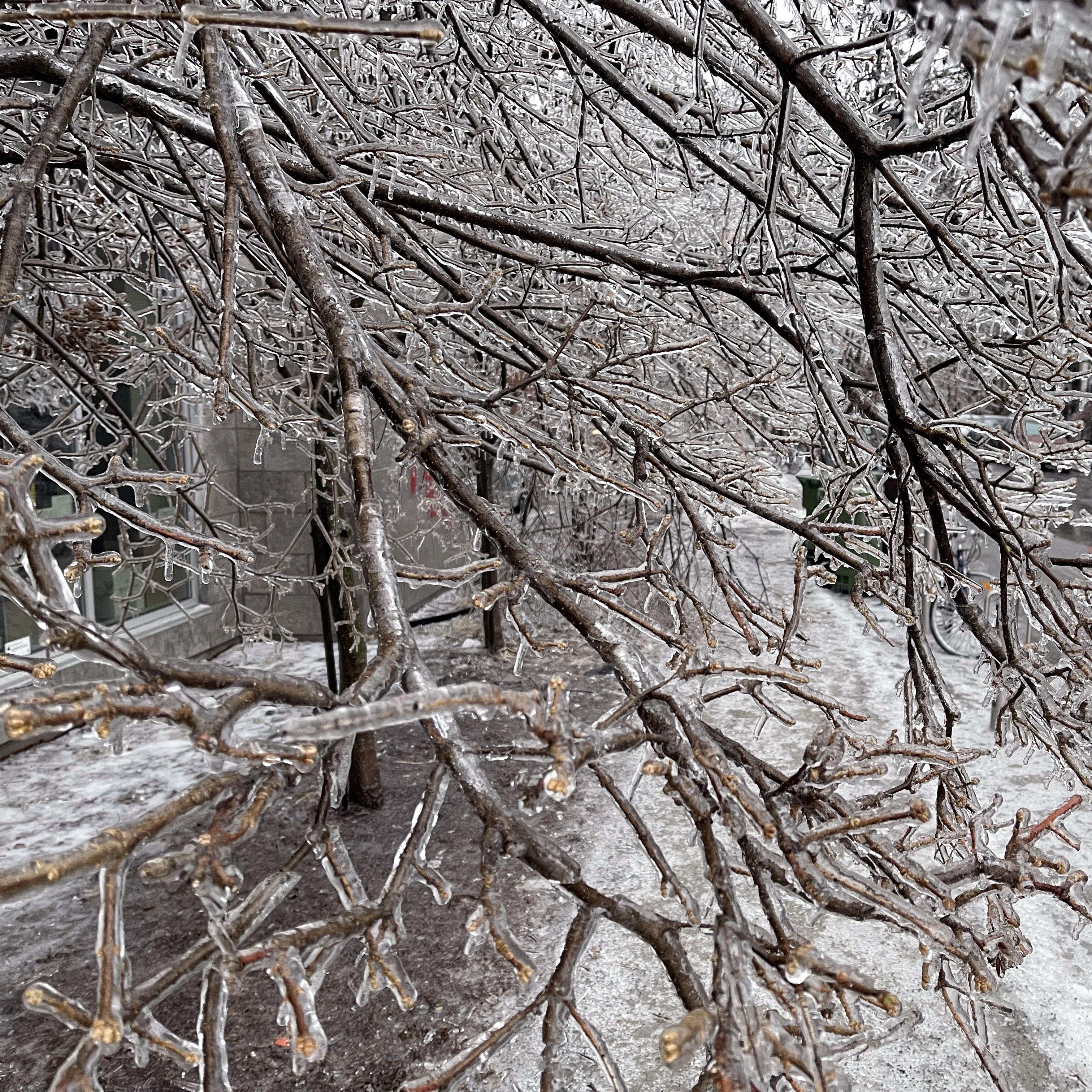
The night was cold, and when the morning came the trees and lampposts were still covered with a layer of ice. Looking at the Hydro-Québec outage map more power had gone out overnight across the island. Our neighbourhood in the East was pretty bad, but Montreal’s West Island was completely decimated; a sea of outages on the interactive map. It later emerged the West Island has many of the city’s older trees, and was therefore more at risk from ice storm damage.
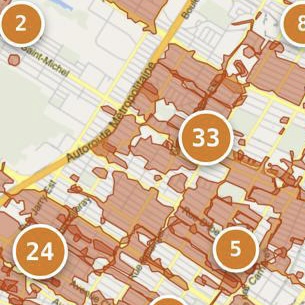
We tried to make coffee using a fondue set. The tiny paraffin burner took 15 minutes to heat a small pot of water, just enough to make some coffee with an Aeropress.
Fortunately, we also had a radio which could run on batteries should the cellphone network have gone down, but thankfully it didn’t. Even though the cellphone network was holding, the next concern was charging our phones. We were OK for the time being as our laptops were charged and could be used as de facto phone chargers so long as we kept the laptops in hibernation.
We didn’t know how long the power outage was going to last. Hydro-Québec were prioritising the parts of the grid with the most affected buildings. Although our cell wasn’t small, it was far from the largest outage in the neighbourhood. So we had a feeling they wouldn’t be able to get to us for at least another 24 hours, maybe longer.
And so, we decided to visit my wife’s parents for the day. They live off-island and the idea was to wait out the power outage for the day in the hopes it might be back on by the evening.
Although initially my wife was able to contact them, they suddenly stopped answering their phone. A check on the Hydro-Québec app showed that although they were initially unaffected by the outages, it looked like they’d now been hit. That had taken their landline with it and presumably local cellphone transmitters. Their outage was thankfully only temporary, and we were able to get back in contact with them and head over to wait things out in some warmth.
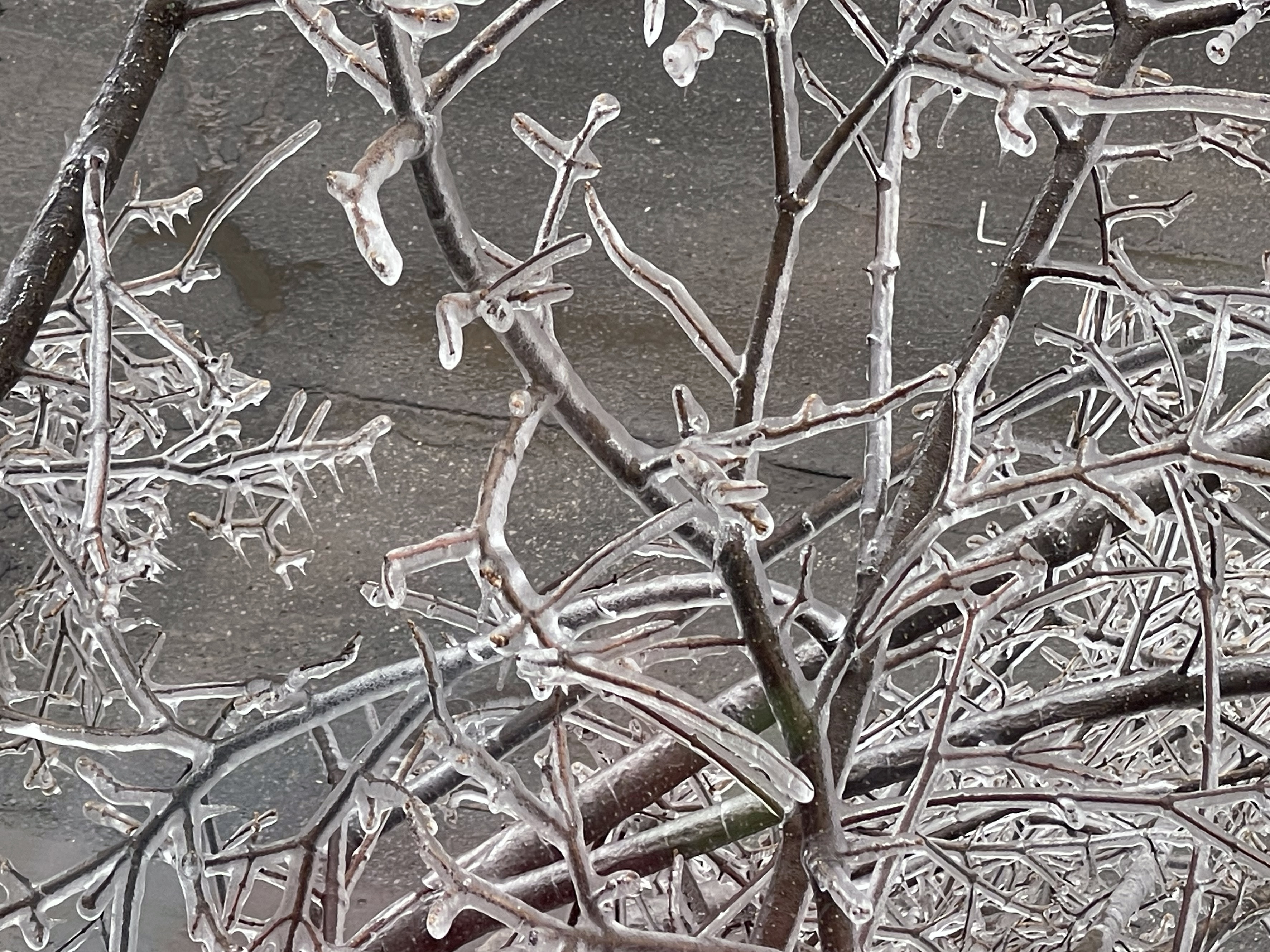
On the way back later that evening, many of the streets of Montreal were still pitch black and we arrived home to find that, no, power was not yet restored to our corner of the neighbourhood, and so it was another chilly night. A Hydro-Québec crew were inspecting an old wooden telegraph pole opposite which gave us hope that a restoration of power might not be far away, but our hopes proved to be futile.
Thankfully, my wife’s father had given us a camping stove, so at least when the morning came we wouldn’t be deprived of coffee. And when the morning did come, a thaw was fully in force. The ice coating the trees had bubbles of air moving through the encased branches, making them appear to have organic circulatory systems on their exteriors.
Within a few hours all the ice had melted off everything it was encasing. Around early afternoon, power returned. The fridge seemed to heave a sigh of relief as it hummed back, only to be drowned out by the louder sigh of relief from our apartment’s human inhabitants.
The Aftermath
With the power back on things were able to get back to normal. Our internet was still out, and that didn’t return for another day and a half. But it was hard to complain when several of the adjacent blocks still didn’t have electricity. And we had phone data, which was enough to tide us over.
Several cellphone providers waived any charges people incurred for going over their data caps. A nice gesture, but it seems to me internet should really be considered a utility in this day and age, and it would be nice to see legislation passed which would automatically remove data caps during local emergencies like this. We can’t count on the telecommunications monopolies to always be magnanimous.
Hydro-Québec seemed to do a solid job of methodically restoring power despite apparently not having enough workers, and their app was excellent with its realtime outage map.
Although the top news story in Central Canada, the international media seemed to not have noticed anything was amiss in our very large and populated corner of North America. The BBC had a short clip of lightning striking the CN Tower in Toronto, incorrectly noting thunderstorms were responsible for the widespread power outages. A few days later, The Guardian did cover it alongside severe weather in Australia. Better coverage came from The Japan Times who wrote a short but well reported story on the event.
I got thinking about how we were lucky to see a proper thaw the following day. It stopped any further damage taking place and allowed the energy company to get back things under control.
It would have been so much worse if the temperature had plummeted after the storm, which was what happened in 1998, and with the temperature remaining low for weeks afterwards the effects then were catastrophic. One of my colleagues who was working downtown back then told me at one point Montreal’s city centre had to be isolated and military helicopters called in to snipe the giant icicles off the skyscrapers, lest they fall and injure people.
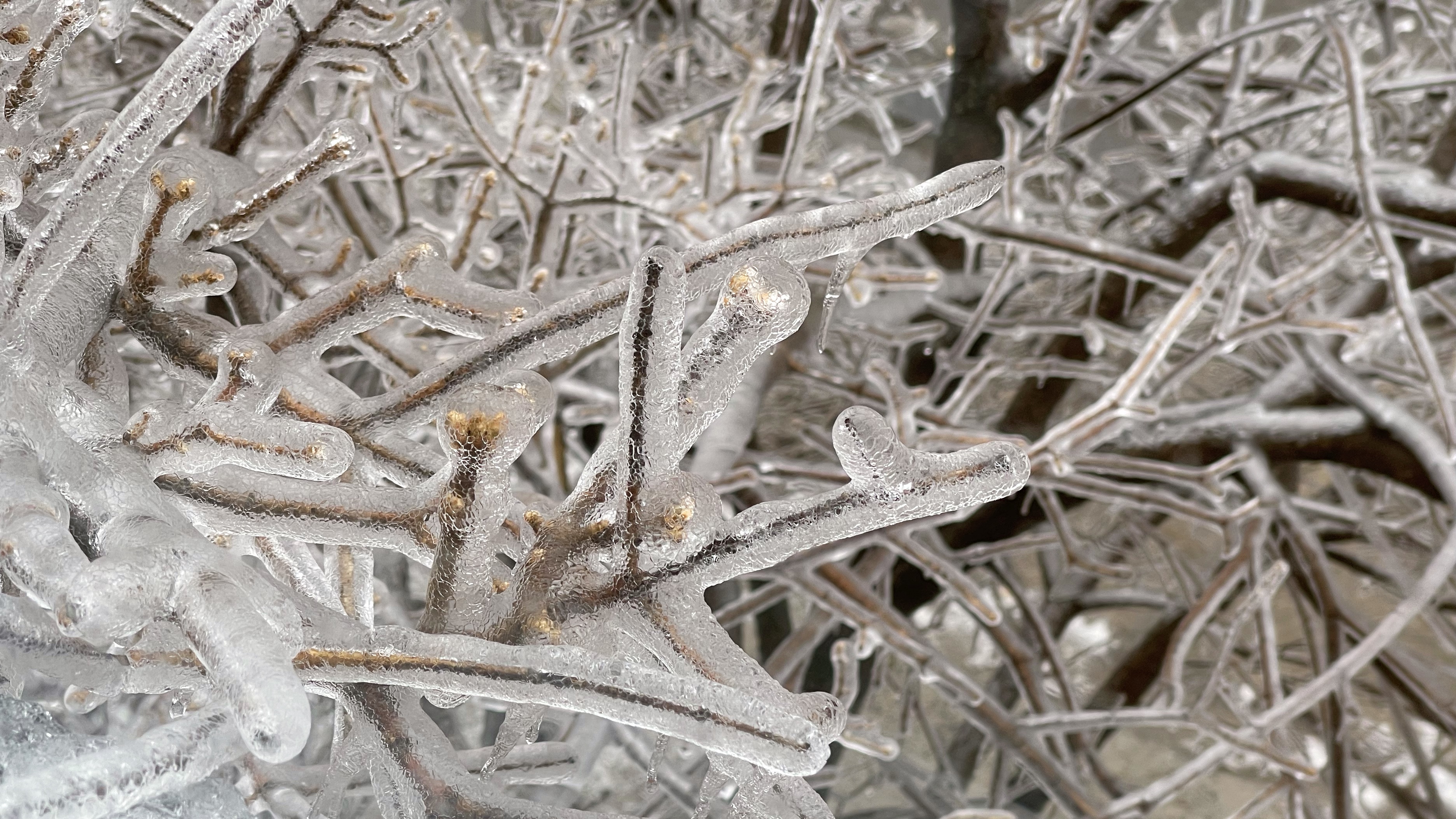
There was nothing so dramatic this time, but had this storm occurred in February, things would have been different.
Lessons Learned

Extreme weather events no longer appear to be rare. When a rare event happens, you can chalk it up to bad luck. When you know it might happen, albeit infrequently, it makes sense to be prepared.
Hydro-Québec had a plan following the 1998 ice storm, which would have involved pruning trees near power lines and trying to put some power lines underground. From what I can tell, they followed through on very little of these actions. My theory is they may have gambled a severe ice storm is a once in a decade event and that it would cost less money to handle the fallout of the next storm than invest in preventative measures. It might be a hedging of bets which played out from a financial perspective, but people seem angry the authorities weren’t better prepared, and the populous would have been even less forgiving had the impact been worse.
In terms of personal weather events I’d encountered, this was the second extreme one I’d experience in the last 12 months. The first was the record-breaking heatwave which took place in the U.K. in July 2022, and that was unlike anything I’d ever experienced in London.
The practical takeaway from this experience was we had neither an emergency kit nor and emergency supply of food. So, we’ll be better prepared for next time. A UPS wouldn’t go amiss either as sometimes the power can go out, but other utilities like the internet can still keep going and devices always need to be kept charged.
We also now have that small camping stove I mentioned which will meet our cooking needs, although we can’t use it indoors without the windows open, so in cold weather the cooking will need to happen on the balcony.
It does seem to be the trend that rare weather is becoming infrequent weather, and infrequent weather is becoming less infrequent. In lieu of anyone taking real action to fight climate breakdown, it’s a slow march towards a world where we need to be better prepared for heat waves, hurricanes and ice storms.